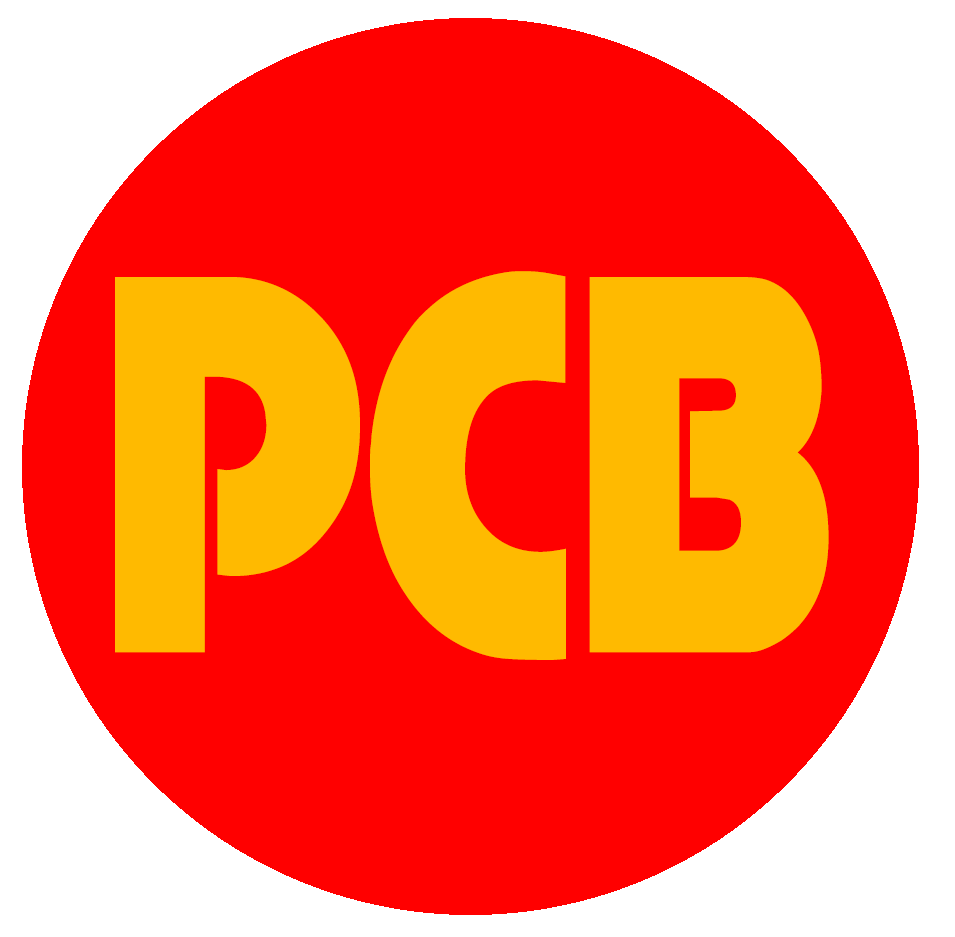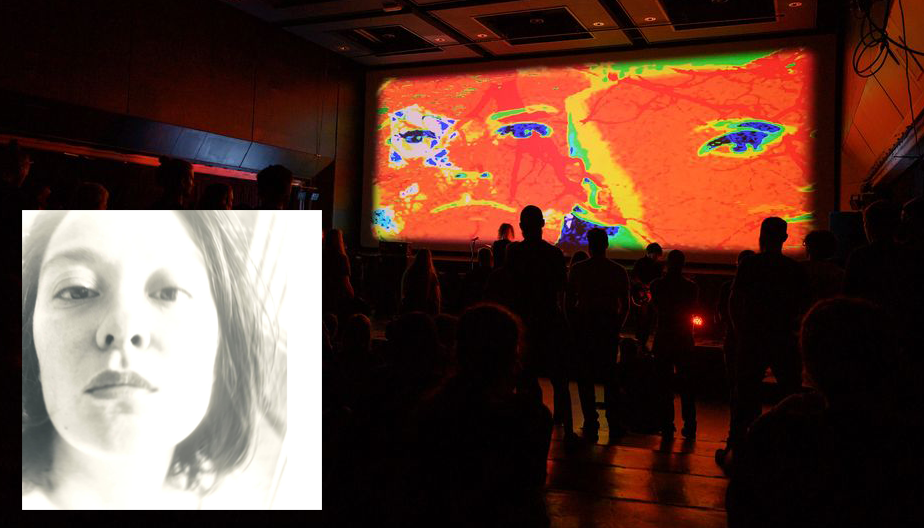By Keith Walsh
Dedicated to the practice of art and its transformative nature since childhood, New Media artist Francesca Bonci has moved from paper and canvasses to making videos and live presentations with some of the world’s favorite musicians. Growing up in Turin, Italy afforded her the opportunity to absorb 500 years of art styles, infusing them into a technique that relies on traditional, analog and digital media to create impressionistic scenes filled with light and color.
Popular Culture Beat: Do you find digital media equally satisfying, or does working in traditional media of brushes, pencils, pens and charcoal satisfy something in a way you can’t find anywhere else?
Francesca Bonci: It depends. As for drawing and coloring, I still prefer to use traditional media. I still use pencil, watercolors, and markers a lot for my illustrations. And also for making storyboards or diagrams where I take notes for my work. I like the unpredictability of the lines and how my illustrations look when I scan and digitize them. But for everything else, I also use Photoshop and the graphics tablet a lot.
“I love the enthusiasm and respect that you Americans have for art, culture and design.”
Francesca Bonci
Popular Culture Beat: How did you connect with Federale? What specific video software did you use? Where was the footage shot? How many times have you been to the U.S. and what impressed you the most from a design/art perspective?
Francesca Bonci: I met Collin last year when I went to the Brian Jonestown Massacre concert here in Italy. We were already connected on social media and we met before the concert because I had to give him a package to deliver to Peter from Dandy Warhols. I had just worked with Peter on his amazing project “Pete International Airport” and Collin liked my work. So he asked me to work on one of his songs! I was very happy to accept.
In the Federale video I used various things. The editing was done with Final Cut which is my favorite video editing software, but the manipulations of the various parts were done with my analog devices, video synth and VHS processor and with a very interesting iPhone app called Luminancer, which is modeled after classic analog synth hardware and is designed for live performances. Collin’s footages were provided to me by himself and the rest are my usual manipulated videos and images.
Unfortunately it seems incredible, but I have never been to the USA. I have been working for many years on a project based in San Francisco called One – Legged Heart and I was supposed to go the year the pandemic arrived. But since then everything has stopped a bit. Now I am getting my passport because in October there will be the release of the second album of the trilogy and the screening of the 5 videos I made, in Santa Monica. I would like to be there. And do you want to know what happened? The day before the appointment for the documents I tested positive for covid. I can’t tell you anything about what struck me, there are many American artists and designers that I love, but one thing I know: My work is very much appreciated in the USA and I love the enthusiasm and respect that you Americans have for art, culture and design. [Francesca contacted me letting me know that the screenings in Santa Monica have been changed to an Internet presentation on October 31 at YouTube: One Legged Heart. –KW]
Popular Culture Beat: What are some challenges, and strategies for working transatlantically on videos?
Francesca Bonci: I don’t know. I always work and approach artists of all provenance in the same way. And I’ve worked with bands from countries and languages from literally every part of the world! And honestly, I couldn’t say what challenges or strategies are needed. In fact, as I said before, I’ve always been so respected as an artist that I feel like saying that it’s really fun to work overseas 😉
“I like the unpredictability of the lines and how my illustrations look when I scan and digitize them.”
Francesca Bonci
Popular Culture Beat: What was the breakthrough moment as an artist when you first made something that you realized was very special?
Francesca Bonci: Maybe the real moment was when I was invited for the first time by a post-rock festival in Norway to do visuals for a band. Up until that point I had only worked on music videos that had a beginning and an end. I was in a moment where I felt I needed a change, it was no longer enough to contain my visions in a video clip. So I started to think that it would be nice to create broader scenarios, something that came to life together with the musical show, something that would reach people and overwhelm them and that they would remember as in a profound experience.
The response was great. From there I started to do this type of work too. To create emotional and impactful scenarios and to transform music videos more and more until I reached my vision, my way of feeling music and expressing myself. And I could do it by travelling and making a lot of nice acquaintances. A dream! I don’t know if I’m special, but I reach people and what they give me back makes me happy and takes me away from the darkness. So maybe it’s right that I continue to do it, even though in my country I’m not appreciated in the same way.
Popular Culture Beat: What is the art or video you are most proud of?
Francesca Bonci: Can you believe me when I tell you that each of the videos I’ve made makes me proud? But if I have to choose one, then I’ll say the first video for Pete International Airport. And I’ll tell you why. It was the first work with significant visibility for obvious reasons and therefore inevitably a sort of baptism of fire. I could compare myself with a wider audience, perhaps accustomed to higher levels of art. Plus I was about to work with a musician I love very much, on a project I love very much. It was like reaching an important personal milestone and being involved in an album (for which I also designed the cover) that had a very important and shareable meaning as we were emerging from the pandemic. It meant a lot and I felt good. I felt like the hope of not falling into the abyss was taking me by the hand. That’s why.
Popular Culture Beat: Even earlier than 2000 was the beginning of computers in every home, but bandwidth and computing power was low. What do you remember about videos at that time, and then how the media evolved?
Francesca Bonci: To tell the truth, I have been lucky enough to have had to deal with computers since childhood: VIC-20, Commodore 64, Amiga 500. My brother is a kind of computer genius and he introduced me to this world as far back as I can remember. You could do small rudimentary things, but it was fun. At 16, when Windows 95 came out, I started taking a course after class to get the ECDL license. This is to say that I have always been familiar with computers and their potential. After finishing high school, I enrolled in this new limited-access course in multimedia design and visual design at the Academy of Fine Arts. It was 2001. And from there, a whole new world opened up to me. I started using Apple computers, to be able to really create things with the computer. Thanks to the Internet, I could see what they were doing in the world in terms of design and it was all so cool!
Popular Culture Beat: Did you have a chance to look back at the introduction of MTV in the early 80s? Thoughts? Do you see any parallels to the birth of YouTube 25 years later?
Francesca Bonci: I don’t know. In the early 80s I was just born, but MTV arrived in Italy in the mid 90s even if before that we had something similar in Italy called VIDEOMUSIC. I remember that it was beautiful to have a thematic channel that talked all day only about music, then I was impressed by the aesthetics of the channel and by these music videos on rotation all day. It was a real addiction for us young people I think and it contributed to my love for music, for concerts and certainly to my choice to be a videomaker etc.. The advent of YouTube for me was even more impactful!! I could decide to see and listen to what I wanted when I wanted and the more the years passed the more the content increased. It was truly incredible. Plus the difference was that I too could be visible to the world with my videos. And for me it was fundamental, because it allowed me to make my work known. I wouldn’t be who I am without the Internet and without YouTube.
(Featured photo by Alf Solbakken with inset self portrait of Francesca).
Francesca Bonci LinkTree
Francesca Bonci WordPress
Francesca Bonci Facebook
Francesca Bonci Instagram
Francesca Bonci YouTube
Federale Band dot com
finis

